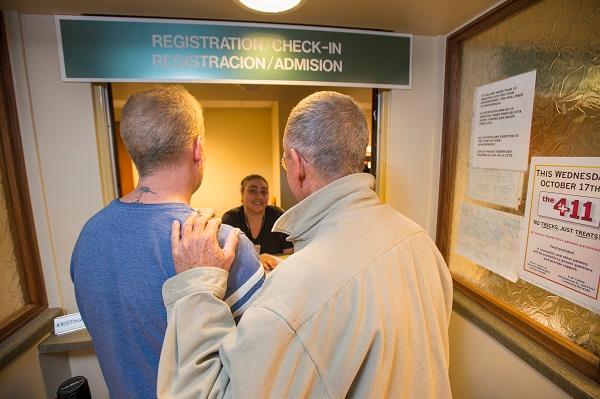
Health officials say the numbers are declining because more people in Denver are being treated for HIV, making it more difficult to spread the virus.
“Treatment really is prevention," Dr. Mark Thrun, director of HIV Prevention at Denver Public Health, says. "If we get people on medications for HIV, they’re less likely to transmit virus to other people, so not only do they get to live long healthy lives, but they keep their partners healthy as well.”
In 2005, 238 people in Denver were diagnosed with HIV. In 2013, the numbers dropped to 117.
But health officials say they aren't seeing the same trend more broadly in Colorado or across the country. According to the data, new diagnoses have remained fairly steady over the past decade. Colorado has even seen rates climb in rural areas.
Thrun said it may be easier to get a handle on the virus in bigger cities, in part because there’s better access to health care.
“We are mirroring what we’ve seen in some other urban areas such as Chicago and San Francisco, where we’ve been able to concentrate our efforts on an area that is fairly concentrated,” Thrun says.
Today, very few people in Colorado living with HIV go on to develop AIDS, according to Thrun.
“AIDS is becoming an old term for us," he says. "It really doesn’t have the impact that it did at the beginning of the epidemic."
Thrun said HIV is most common in men who have sex with men, but it’s also a condition that disproportionately affects people on the lower end of the socioeconomic ladder.









